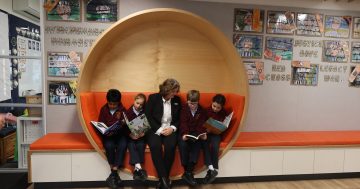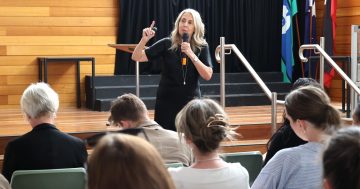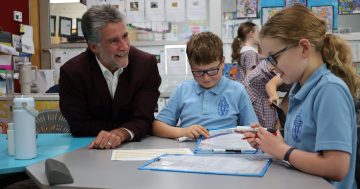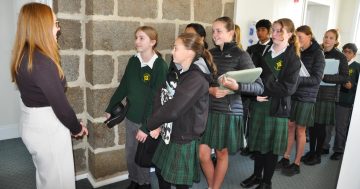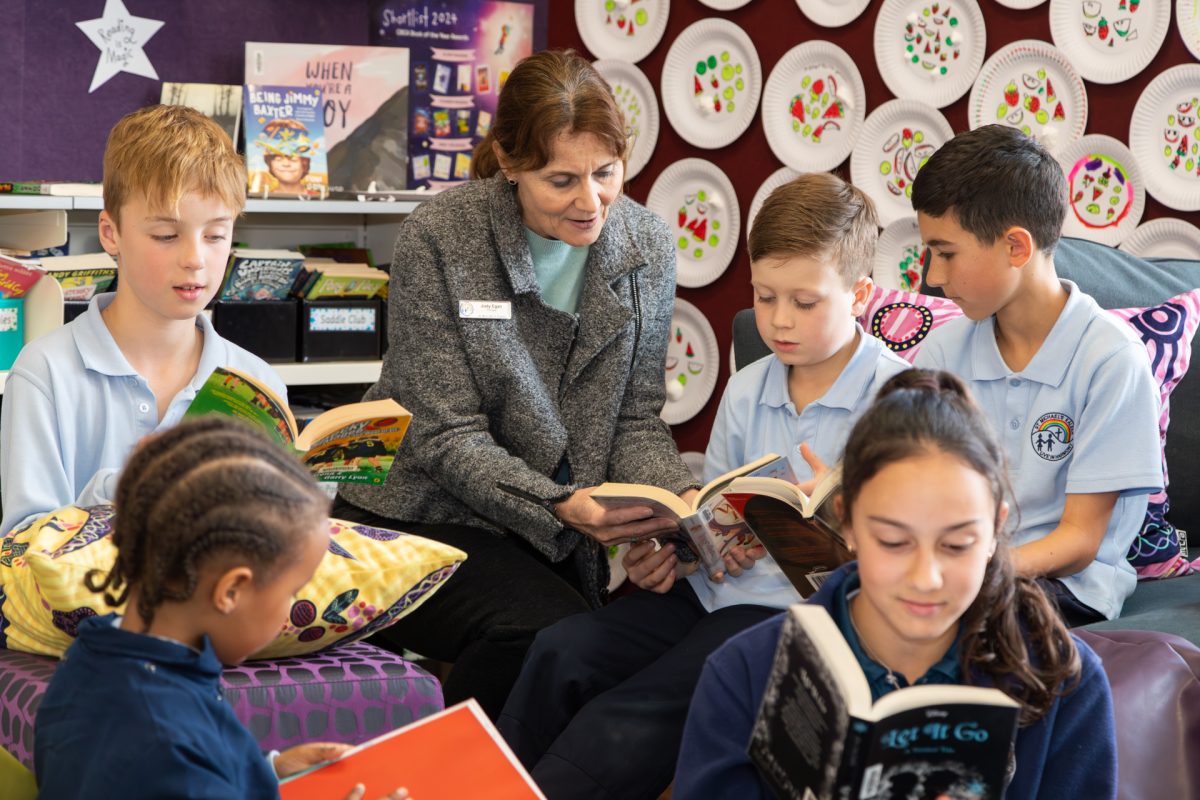
St Michael’s Primary School Kaleen principal Judy Egan reads with students. The school is posting impressive results with the Catholic system’s Catalyst program. Photos: Michelle Kroll.
A small Catholic school in Kaleen has posted impressive results in the latest NAPLAN testing, supporting the value of its adoption of high-impact teaching methods in 2021.
St Michael’s Primary School may not be Catholic Education’s top performer but its consistent improvement since implementing the Catalyst teaching program shows what is possible.
Principal Judy Egan is particularly proud of her school’s reading scores in this week’s NAPLAN results.
In year 3 reading, 87 per cent of students achieved Strong or Exceeding, exceeding the ACT average by 16 per cent. Year 5 was similar at 86 per cent for both categories, beating the ACT average by 8 per cent.
In both years, no students were deemed as Needing Additional Support, compared with 5.5 per cent of ACT students, on average, who were in this category.
Ms Egan said St Michael’s introduced the Catalyst program in 2021, displaying learning goals, bringing in coaches for teachers, and deploying evidence-based practice in the classroom, including explicit instruction and methods based on the science of reading and learning.
She said Explicit Direct Teaching and decoding, including phonics, had turned around reading outcomes from the previous whole-language approach.
“That’s very powerful for the teachers and the students,” Ms Egan said.
“We can’t expect them to look at pictures in a book and then to make a judgment, we have to teach them the code, and once they have the code, then you’re opening them up to being good learners and growing our reading.”
Ms Egan said the results were even more impressive given St Michael’s was a multicultural school where English was a second language for some students.
She said about 30 per cent of students were on personalised plans providing individual support.
“So it’s what we teach, how we teach, and we’re looking at the data we get and significant improvement, and it’s all evidence-based,” she said.
“So we’re really confident in what we’re doing.”

St Michael’s Primary teacher Erica Tokich with students. Teachers can focus on the children and their practice.
Ms Egan said the strategies for literacy could be applied to numeracy, presenting information in small chunks, reviewing daily to embed knowledge in the long-term memory.
“We want their long-term memory to have information so that it can be pulled out when they need it,” she said.
The Catalyst program had also relieved teachers of writing curriculum, with Catholic Education providing content.
“We focus on the pedagogy rather than the content and that’s freed teachers to really have the time to look at their practice and improve that,” Ms Egan said.
“And the outcome of that is that our students feel more supported.
“They’re happy, they’re engaged, they want to come to school and that’s great for everyone; for the parents, because they see it’s a flow-on effect with the kids.”
As well as NAPLAN, St Michael’s uses the Dynamic Indicators of Basic Early Literacy Skills (DIBELS) testing and ACER’s Progressive Achievement Testing (PAT) to measure outcomes and provide data.
In the 2023 and 2024 PAT, Kaleen students consistently exceeded the national achievement expectations for reading and made more than a year’s worth of growth over a year’s worth of learning.
Ms Egan said the school didn’t overemphasise testing with the children but it was important to collect and use data.
She was aware that some students did suffer from anxiety and that could be dealt with, but assessment was not a scary word at St Michael’s.
“The good thing here is they understand that there are times when they do complete assessment,” Ms Egan said.
Which augurs well for next year’s NAPLAN.













